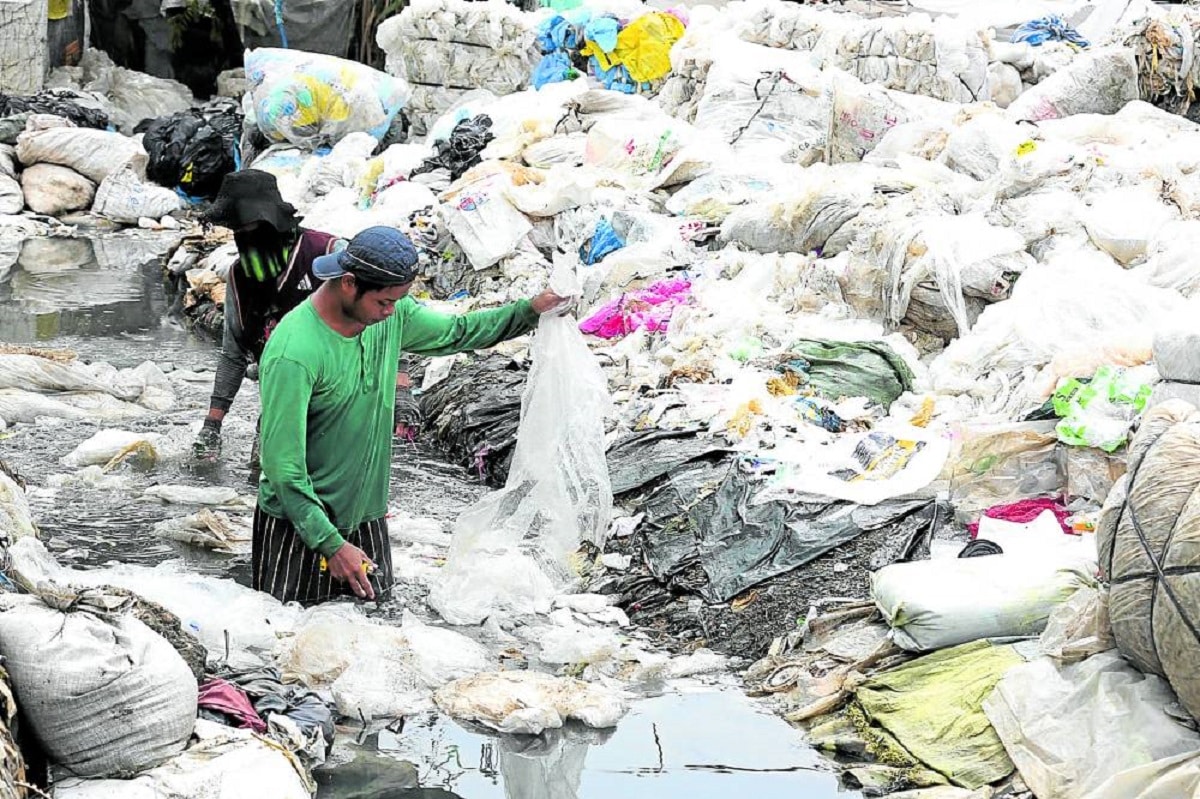Joint fight vs plastics, pollution

CRITICAL SECTOR In this November 2015 photo, waste pickers wash plastics collected from the garbage of Quezon City communities and resell them. The Philippine Alliance for Recycling and Materials Sustainability’s advocacy integrates the informal waste sector, the waste pickers, and social enterprise groups who work tirelessly to collect and/or process post-consumer waste while creating livelihoods. —Inquirer file photo
MANILA, Philippines — The Philippines faces an escalating waste management challenge, with mismanaged plastic disposal practices and pollution continuing to pose serious environmental threats, including to marine ecosystems.
The Philippine Alliance for Recycling and Materials Sustainability (PARMS), established in 2014, has championed the advocacy of achieving “Zero Waste to Nature (ZWTN) Ambisyon 2030.” This ambitious goal aims to employ the power of partnerships across all sectors to strengthen accountability through the Extended Producer Responsibility (EPR) Act.
The successful implementation of the EPR is a milestone for the Philippines. Through close collaboration among all stakeholders—including obliged enterprises, Producer Responsibility Organizations, nongovernmental organizations (NGOs), social enterprises, waste diverters, and government agencies, the Philippines has become the first country to address marine litter both quantitatively and qualitatively. This testifies to the strength of a collective approach in tackling the plastic waste crisis.
READ: Ending global plastic pollution
Achieving circularity through systems thinking starts with the design of the products and packaging placed in the market, with brand owners developing recyclable and recycled materials to meet both global and local targets, responsible sourcing, and traceability.
Article continues after this advertisementThis will be followed by increased infrastructure for reuse, refill, and recycling. Empowering waste diversion through partnerships and collaborations has been the cornerstone of PARMS’ advocacy. At the heart of the program is the integration of the informal waste sector, the waste pickers, and social enterprise groups who work tirelessly to collect and/or process post-consumer waste while creating livelihoods.
Article continues after this advertisementPARMS plays a pivotal role in bridging the gap between waste diverters and obliged enterprises. This enables the responsible collection, recycling, and recovery of plastics while ensuring compliance with environmental and labor laws. Enterprises meet their EPR obligations by funding programs or purchasing verified plastic waste diversion credits, directly supporting the recovery and recycling ecosystem. This framework has driven measurable progress in reducing waste and setting up scalable systems to achieve zero waste to nature.
Education, innovation
Education and innovation are critical to achieving a circular economy. PARMS has partnered with schools and universities to promote sustainable practices through proper waste segregation and a circular economy. By raising awareness among students and future leaders, a culture of responsibility and environmental stewardship is fostered that will sustain these efforts for generations to come.
In addition, grassroots initiatives with schools have supported plastic waste collection programs and boosted segregation and recycling efforts, reinforcing the message that waste can be transformed into opportunity.
At the national level, PARMS actively supports the implementation of the EPR law by providing compliance assistance to enterprises and ensuring that waste recovery systems are impactful and efficient. And at the local level, it collaborates with local government units to enhance community-based waste management systems. These partnerships have strengthened materials recovery facilities and supported local recycling initiatives that promote investments and offer green jobs.
Civil Society and NGOs have also been vital partners in amplifying PARMS’ advocacy through programs that educate households and communities on proper waste management and sustainable practices. Multi-stakeholder platforms bring together NGOs, businesses, and government representatives to align goals and address gaps in the waste management ecosystem. These dialogues have paved the way for impactful initiatives, such as PARMS’ centralized EPR Portal, which enables enterprises to transparently track compliance and plastic waste diversion efforts. —Contributed